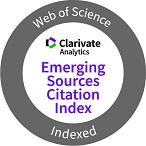Effectiveness measurement: When will we get it right?
DOI:
https://doi.org/10.46631/jefas.2009.v14n27.04Keywords:
Accountability, attribution, effectiveness measurement, performance measurement, program evaluation, results-oriented measurement, managing for resultsAbstract
Credible demonstration of policy or program impacts depends on understanding the distinction between inputs, outputs, outcomes and indicators. Moreover, in order to be trusted, public reports on a programs’ performance need to focus more selectively on identifying the key measures of performance. In the first place, the aim of the article is to provide those involved in the practice of program evaluation with enhanced understanding of the current literature, reports and documentation on estimating impacts and results of government programs and policies. Secondly, it is designed to share definitions and guidelines used to determine economic impacts. Finally, this article includes current best practices involved in measuring incremental impacts, all of which, we contend, enable program evaluation staff providing them with new ways of approaching measurement, effectiveness and accountability in a strategic and comprehensive manner.
Downloads
References
Artley, W., Ellison, D. J., & Kennedy, B. (2002). The performance-based management handbook: A six-volume
compilation of techniques and tools for implementing the government performance and results act of 1993.
Washington, D.C.: Training Resources and data Exchange (Performance-Based Management Special
Interest Group).
Auditor General of Canada & Treasury Board Secretariat. (1998). modernizing accountability practices in the public sector. Ottawa, Canada: Treasury Board of Canada.
Auditor General of Canada (1997). moving toward managing for results (Chapter 11 in Annual Report of the Auditor General of Canada to the House of Commons). Ottawa, Canada: Author. Retrieved September 15, 2009 from the Office of the Auditor General of Canada Web
site: <http://www.oag-bvg.gc.ca>.
Auditor General of Canada (2000). implementing resultsbased management: Lessons from the literature. Ottawa, Canada: Author. Retrieved September 19, 2009
from the Office of the Auditor General of Canada Web site: <http://www.oag-bvg.gc.ca>.
Auditor General of Canada (2003). reporting on outcomes: Setting Performance expectations and telling performance stories (OAG Discussion Paper). Ottawa,
Canada: Author. Retrieved September 10, 2009 from the Office of the Auditor General of Canada Web site:
<http://www.oag-bvg.gc.ca/domino/other.nsf’html/ 200305dpl_e.html/$file/200305dpl_e.pdf>.
Bird, S., Cox, D., Farewell, V., Goldstein, H., Holt, T., & Smith, P. (2005). Performance Indicators: Good, Bad, and Ugly.
Journal of the royal Statistical Society: Series A (Statistics in Society). 168(1), 1-27.
Bartik, T. (2003, 03-89). Evaluating the impacts of local economic development. Upjohn working paper. Kalamazoo, Michigan: W. E. Upjohn Institute for Employment
Research.
Bolton, M. (2003). Public Sector Performance Measurement: Delivering Greater Accountability. Work Study, 52(1),
-24.
CCAF-FCVI. (2002). reporting principles taking public performance reporting to a new level. Ottawa, Canada: Author.
CCAF-FCVI. (2001). reaching for excellence - governance and performance reporting at the princess margaret hospital foundation (A joint research initiative with the
Princess Margaret Hospital Foundation). Ottawa, Canada: Author
Curristine, T. (2005), Performance Information in the Budget process: Results of OECD 2005 Questionnaire. OECD
Journal on Budgeting, 5(2), Paris, France: OECD.
Goss Gilroy Inc. (1997). Defining performance (Prepared for government review and quality services Treasury
Board of Canada Secretariat). Ottawa, Canada: Author.
Hatry, H. (2004). Public and Private Agencies Need to manage for results, Not Just measure Them. Washington, D.C.:
Urban Institute Press.
Mayne, J. (2004). Reporting on outcomes: setting performance expectations and telling performance stories.
Canadian Journal of Program Evaluation, 19(1), 31-60.
Mayne, J. (2006). Performance studies: the missing link? Canadian Journal of Program Evaluation, 21(2), 201-208.
Mayne, J., & Zapico-Goni, E. (1997). Performance monitoring for public sector reform: Future directions from international experience (Eds). New Brunswick, NJ: Transaction Publishers.
Meekings, A. (1995). Unlocking the potential of performance measurement: A practical implementation guide.
Public money and management, 15(4), 5-12.
OECD (2004). A Comparative Analysis of government Offices in OECD Countries, OECD, Paris, France: OECD Publishing.
OECD (2007). Towards Better measurement of government: OECD Working Papers on Public governance, 2007/1.
Paris, France: OECD Publishing.
Schacter, M. (2002a). Not a tool kit practitioner’s guide to measuring the performance of public programs. Ottawa,
Canada: Institute on Governance.
Schacter, M. (2002b). What will be, will be: The challenge of applying results-based thinking to policy. Ottawa, Canada: Institute on Governance.
Treasury Board of Canada Secretariat. (1998). Alternative service delivery, citizen-centred service and the partnership
option. Ottawa, Canada: Author. Retrieved September 10, 2009 from the Treasury Board of Canada Web site:
Treasury Board of Canada Secretariat. (2000). A comparative analysis of governments’ performance measurement strategies. Ottawa, Canada: Author. Retrieved
September 07, 2009 from Treasury Board of Canada Secretariat Web site: <http://www.tbssct.gc.ca/rma/communic/prr2000/coman_e.asp>.
Treasury Board of Canada Secretariat. (2001a). guidelines for preparing departmental performance reports 2001-
Ottawa, Canada: Author. Retrieved September
, 2009 from the Treasury Board of Canada Secretariat Web site: <http://www.tbs-sct.gc.ca/rma/dpr/ 01-02/Guidance/glld_e.asp>.
Treasury Board of Canada Secretariat. (2001b). Linking resources to results: inter-jurisdictional research study findings.
Ottawa, Canada: Author. Retrieved September 04, 2009 from the Treasury Board of Canada Secretariat
Web site: <http://www.tbs-sct.gc.ca/rma/account/r2r/r2r-01_e.asp>.
Wholey, J. S., & Hatry, H. (1992). The case for performance monitoring. Public Administration review, 52 (11/12),
-610.
Downloads
Published
How to Cite
Issue
Section
License
Copyright (c) 2021 Journal of Economics, Finance and Administrative Science

This work is licensed under a Creative Commons Attribution 4.0 International License.











